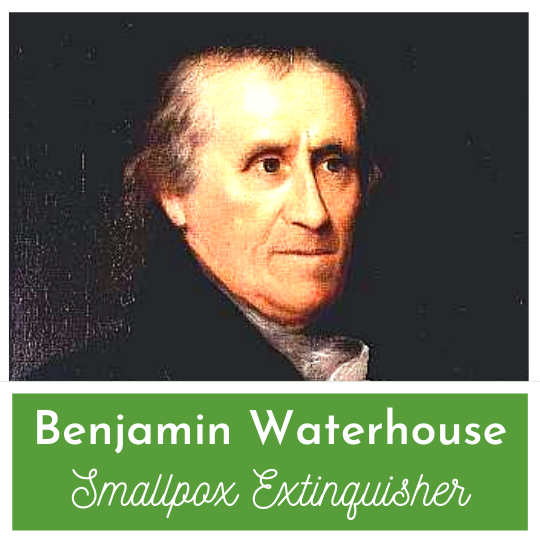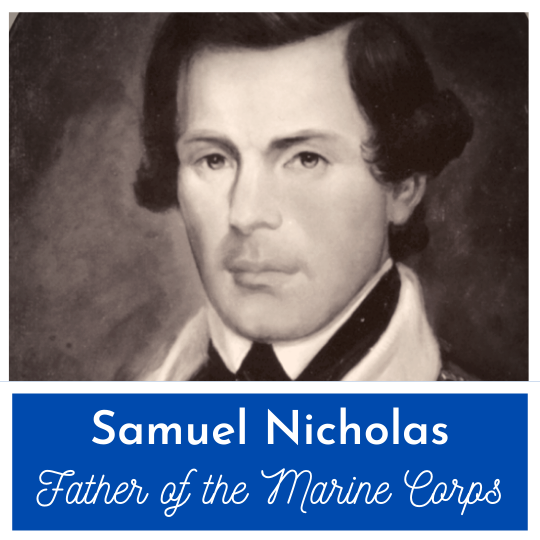Bringing the Smallpox Vaccine to America - Dr. Benjamin Waterhouse
Benjamin Waterhouse was the first proponent of smallpox vaccinations in the United States.
Benjamin Waterhouse
Benjamin Waterhouse apprenticed to a Physician as a teenager and proved so adept at the practice that he set off to study medicine in Europe shortly after his 21st birthday.
Leaving in March of 1775, Waterhouse set sail on one of the very last ships before the outbreak of the Revolutionary War.
The education he received in England, Scotland and the Netherlands set him up for a return to the United States as one of the most informed doctors in North America.
Keeping Up With The Adams’
Although Waterhouse was overseas through most of the Revolutionary War, he still had a role to play.
While studying in the Netherlands, Benjamin became friendly with (and for a time lived with) then-diplomat John Adams.
Waterhouse became a surrogate member of the Adams Family, and his role in finding an education in Europe for John Quincy Adams was integral to the development of the future President.
Medical Professor
When he returned to the United States, Waterhouse was the supercargo on a ship controlled by Captain Alexander Gillion.
On the trip, he was responsible for the care of a young Charles Adams (another son of John Adams).
After setting up a medical practice, Benjamin was selected to help create and teach at Harvard College’s new Medical School.
Smallpox Vaccines
In 1798, during the presidency of his friend Adams, Waterhouse received the first doses of Edward Jenner’s smallpox vaccine.
Benjamin ran several tests of his own and, once satisfied with the outcome, worked with Thomas Jefferson to implement vaccines across the United States.
This was arguably the single most important step in eliminating the scourge of smallpox from the American landscape.
Making Enemies
Waterhouse was always a bit of a prickly, controversial character.
His outspoken attitudes, and his support of Thomsonian Medicine, eventually had him fired from Harvard after 25 years of work.
Additionally, he became one of the loudest critics of the Essex Junto which was the political machine that ran Massachusetts (and the Federalist Party) during the American Revolution.
Despite this, or perhaps because of it, President James Madison chose Samuel to oversee hospitals in New England during the War of 1812.
After his release in 1820, Waterhouse settled on a career as an author, covering a wide variety of topics until his death in 1846 at the ripe old age of 92.
For a thorough discussion of the Adams-Waterhouse relationship…CLICK HERE.
Here are some other articles regarding Revolutionary Rivalries:
John Morgan’s Side of the Continental Hospital Rivalry
Samuel Ward Sets Petty Issues Aside
James Wilkinson - America’s Favorite Double Agent
This article is an extremely brief overview of the life and career of Benjamin Waterhouse.
To dig deeper on this fascinating American, you will want to read ‘A Life in Medicine and Public Service.’
If you’d like a copy you can get one through the Amazon affiliate link below (you’ll support this site, but don’t worry, Amazon pays me while your price stays the same).
Want to get fun American Revolution articles straight to your inbox every morning?
Subscribe to my email list here.
You can also support this site on Patreon by clicking here.






